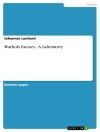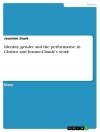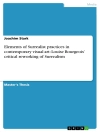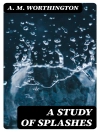In ‘Pictorial Composition and the Critical Judgment of Pictures, ‘ Henry Rankin Poore meticulously explores the intricate relationship between visual elements and compositional techniques within the realm of art. The book combines theoretical frameworks with practical insights, employing a rich, analytical literary style that emphasizes clarity and precision. Poore delves into the principles of aesthetics, offering readers a nuanced perspective on the evaluation of artistic works, informed by art history and contemporary criticism of his time, making it a pivotal text for both practitioners and enthusiasts. Henry Rankin Poore was an esteemed American artist and writer, whose extensive engagement with the art community and his academic pursuits in the field of art education positioned him uniquely to address the critical nature of pictorial composition. His background in painting and direct involvement in the discourse surrounding art rendered him acutely aware of the challenges faced by both creators and critics in interpreting visual narratives. This book stands as a testament to his dedication to elevating the standards of artistic judgment. ‘Pictorial Composition and the Critical Judgment of Pictures’ is essential reading for anyone serious about understanding the mechanics of visual arts. Poore’s insights not only broaden the horizon of aesthetic appreciation but also cultivate a framework for developing critical analysis skills in art criticism and appreciation.
A propos de l’auteur
Henry Rankin Poore (1859-1940) was an influential American artist, critic, and author, whose insights on art have been impactful in the field of pictorial studies. He is best known for his seminal work ‘Pictorial Composition and the Critical Judgment of Pictures’, a comprehensive guide that has informed both artists and critics on the subtleties of composition and the evaluation of visual art (Poore, 1903). Trained as a painter, Poore’s artistic sensibilities deeply informed his literary contributions, infusing them with a practicable understanding of the artistic process. His analyses and teachings on composition broke ground by delving into the underlying principles that govern the order and harmony within a work of art. His adept understanding of balance, rhythm, and emphasis helped to shape a generation of artists who sought to master the challenges of visual storytelling. Poore’s literary style combined scholarly acumen with accessible language, reflecting his dedication to educating a broad audience while maintaining intellectual rigor. His work not only served as a manual for artists to refine their craft but also as a scholarly discourse contributing to the larger conversation about art criticism and the nature of aesthetic judgment. While ‘Pictorial Composition’ remains his most notable publication, Poore’s legacy is bolstered by his career as a respected painter and lecturer, marking him as a distinguished figure in the American art scene of the late 19th and early 20th centuries.












